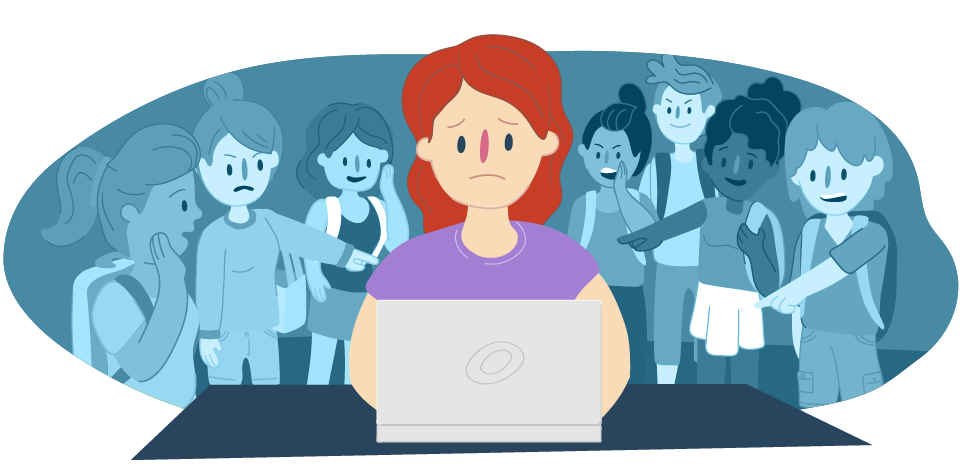Bullying at school
When bullying happens at school, it’s hard to know how to ...
READ MECyberbullying is the use of technology to intentionally hurt another person in an ongoing way. We explore the signs and how to help the child who is cyberbullying change their behaviour.

Cyberbullying happens on a spectrum and to different degrees. New technologies mean that cyberbullying is constantly changing as we discover new ways of connecting with one another.
Cyberbullying can include:
If you see a child doing any of these things they could be cyberbullying someone:
Posting or sending messages using language that hurts somebody’s feelings
Using images to hurt somebody else e.g. sending or posting embarrassing photos/videos to shame somebody publicly
Pressuring another person to take part in something they don’t want to do or forcing someone to share their information
Liking, sharing, and/or commenting on posts that hurt somebody else which perpetuates the cyberbullying
Pretending to be somebody they know online or creating fake profiles to send messages to another person
Excluding others online e.g. removing someone from a group chat, creating a group chat and excluding someone
Trolling somebody by saying mean things to ‘stir them up’
Making threats towards another person
The motivation behind cyberbullying may be different for each child. It is important that the child receives support to understand their behaviour and learn new ways of relating to people that is respectful.
Here are some reasons why kids cyberbully others:
“I made mean comments about a lot of people online thinking no-one would know. They found out it was me and now I hate going to school because nobody wants to be my friend or play online with me” – Brock, 11 years old
As adults we have a responsibility to teach kids how to be respectful in their relationships both online and offline.
Discuss with kids the ways in which we can show respect to others. This may include:
For more support with this issue, contact our local Parentline service in your State or Territory.
You could also visit the eSafety website to find out more about cyberbullying and what you can do.
Bullying at school
When bullying happens at school, it’s hard to know how to ...
READ MESocial media and safety
Using social media is a regular part of life for most young ...
READ MECyberbullying
With increasing time spent online, you might be worried about your child ...
READ MEHow Parentline can help you
Parenting can be a tough job but also really rewarding. Talking to ...
READ METalking helps! We’re here for you.
No problem is too big or too small.
We're here 24 hours a day, 7 days a week